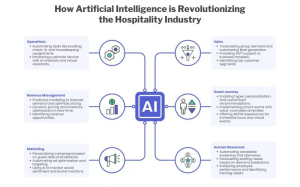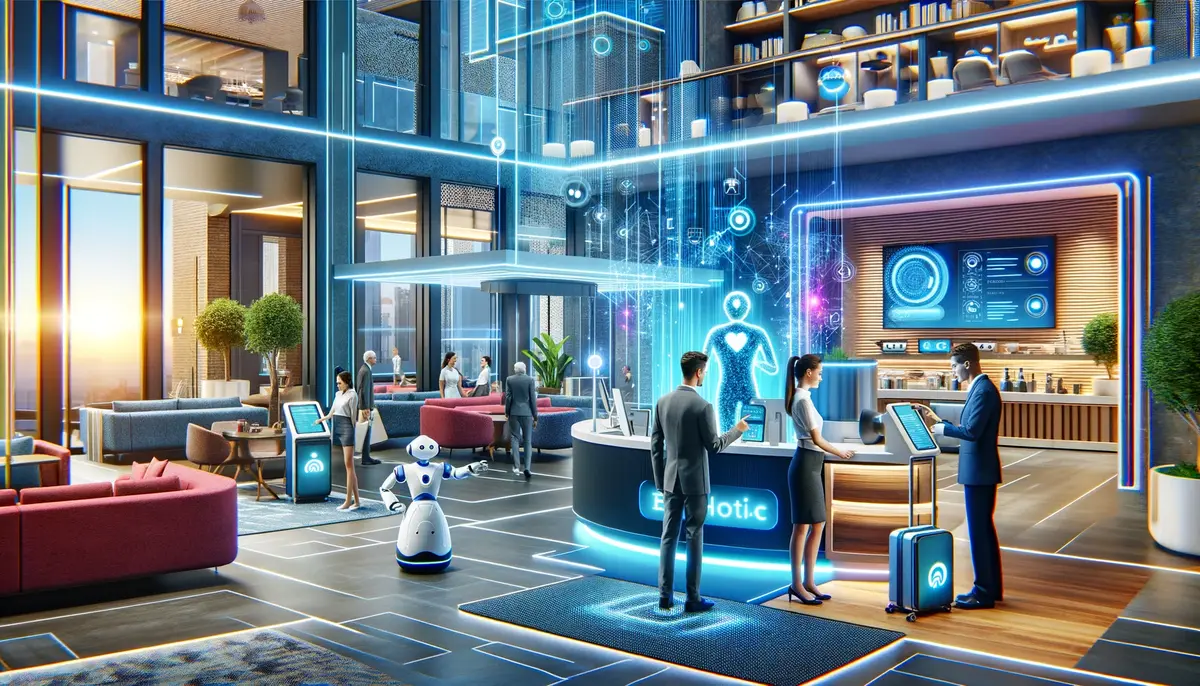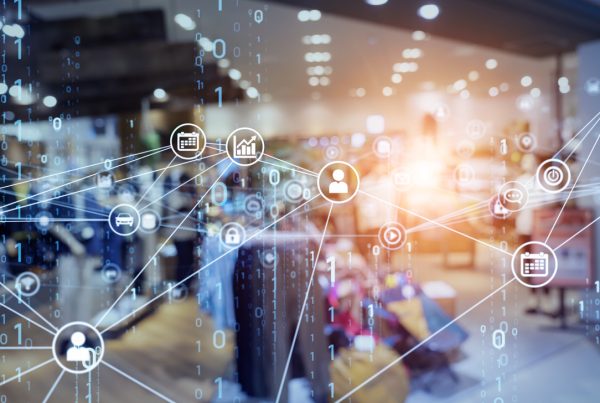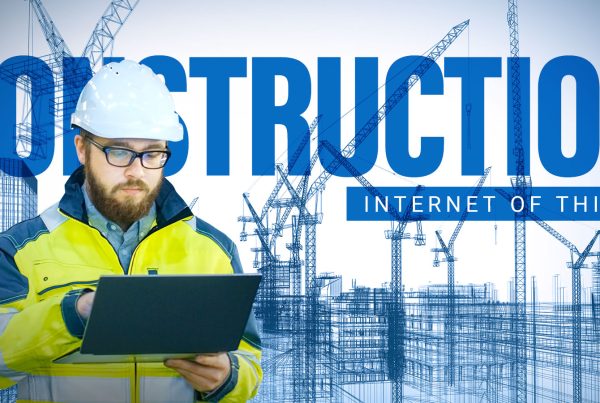It’s important to note that hoteliers who understand how to leverage AI tools to become more efficient and effective will become more valuable than ever. Those who don’t educate themselves may find themselves in a more challenging situation. Translation – – improved efficiency, greater customer satisfaction, and increased revenue…. or not.
What is AI in the Hospitality Industry?
AI in the hospitality industry refers to artificial intelligence technologies used to automate tasks, enhance customer service, and improve operational efficiency. Hotels use AI for booking management, contactless check-ins, and customer support through chatbots and virtual assistants that assist guests with reservations, answer questions, and offer personalized recommendations.

Hotel industry professionals need to understand the latest trends in artificial intelligence because it can significantly impact the way we operate and provide service to guests. AI can automate repetitive tasks, allowing hotel staff to focus on more strategic activities such as building relationships with key clients and providing personalized service to guests. Predictive analytics can help hotel professionals to analyze data and forecast customer behavior and market trends, allowing them to make data-driven decisions and develop more effective marketing strategies. AI-powered personalization and recommendation engines can provide more targeted and personalized experiences to individual guests based on their preferences, past behavior, and demographics. AI-powered chatbots and virtual assistants will allow hotel staff to interact with guests in real-time and provide personalized recommendations and assistance. Smart room technology integrated with AI can provide guests with a more comfortable and convenient stay. AI can also be used to monitor and predict maintenance needs in hotel rooms, optimize pricing and inventory decisions, forecast demand and adjust room availability accordingly, optimize energy efficiency, and reduce the costs associated with managing and operating the hotel. By understanding these trends, hotel industry professionals can stay competitive and provide better service to their guests.
This video provides real-world examples and demonstrates how you can use AI tools like ChatGPT and Gemini for creative content and operational analysis. Don’t miss these user-friendly, often free tools that you can quickly and efficiently integrate into your daily operations. Try these AI tools and see the benefits for your hotel.
Now let’s dive into how each department within a hotel is being impacted by artificial intelligence.
Hotel Operations
Artificial intelligence (AI) improves hotel operations by automating repetitive tasks like booking and contactless check-ins, allowing staff to focus on personalized guest service. AI enhances customer service with chatbots and virtual assistants that help guests make reservations, answer questions, and provide recommendations. Additionally, AI can improve housekeeping room assignments and maintenance by using sensors and cameras to monitor and control the temperature, lighting, and security of guest rooms, optimizing pricing and revenue management through data analysis and predictive modeling, and improving energy efficiency by using smart building systems. AI can also improve the overall efficiency of hotel operations by using AI for forecasting demand, inventory management, and logistics optimization, ultimately enhancing the guest experience by providing more personalized recommendations and experiences.
Hotel Revenue Management
Artificial intelligence (AI) can significantly enhance hotel revenue management by using predictive modeling to analyze historical data and predict future demand and revenue, optimizing pricing and availability via revenue management software to maximize revenue. AI can also assist in setting dynamic pricing based on demand, occupancy and other factors, increasing revenue by charging more for rooms during peak periods and less during off-peak periods. AI can also optimize inventory management by forecasting demand and adjusting room availability accordingly, resulting in increased revenue by selling more rooms at higher prices during peak periods and reducing unsold inventory during off-peak periods. Additionally, AI can personalize pricing and offers to individual guests based on their preferences, past behavior, and demographics, allowing hotels to increase revenue by targeting the right guests with the right offers at the right time. Furthermore, AI can identify opportunities for upselling and cross-selling to guests, and optimize pricing and inventory decisions in real-time based on market conditions, guest behavior, and other factors. AI can help hotels to identify patterns and anomalies in revenue data that can reveal new revenue opportunities and trends.
Hotel Marketing
AI is expected to change hotel marketing by enabling more targeted and personalized marketing campaigns based on individual guests preferences, past behavior, and demographics. AI will automate repetitive and time-consuming tasks such as data analysis, customer segmentation, and campaign management, allowing hotel marketers to focus on more strategic activities. Additionally, AI will enable hotel marketers to analyze large amounts of data and use predictive analytics to forecast customer behavior and market trends, resulting in more effective marketing strategies and data-driven decisions. Chatbots and virtual assistants will become more prevalent in hotel marketing, allowing hotels to interact with guests in real-time and provide personalized recommendations and offers. AI will play a role in identifying and targeting the most effective influencers for hotel campaigns, and assist hotels in monitoring social media platforms and identifying customer feedback, sentiment, and brand mentions to respond promptly and improve the guest experience. AI will allow hotels to automate and optimize their digital advertising campaigns, by identifying the most effective channels, audiences, and times to advertise, resulting in more efficient use of advertising budget.
Hotel Sales & MICE
Hotel group sales managers can use artificial intelligence (AI) to bring in more business travelers by leveraging predictive analytics to forecast future demand for group sales, allowing them to proactively target potential business travelers and anticipate changes in demand. AI-powered personalization and recommendation engines can assist in creating customized sales pitches and packages tailored to the specific needs of business travelers. AI can automate repetitive tasks such as data entry, follow-ups and lead generation, allowing sales managers to focus on building relationships with key clients and closing deals. AI-powered chatbots and virtual assistants can provide 24/7 support to business travelers and assist with booking reservations, answering questions, and providing recommendations. AI can also help manage and analyze customer data, identifying the most valuable business traveler segments, and providing insights into how to best target and engage with them. AI can assist in real-time analytics to track the performance of group sales and identify areas for improvement, and in optimization by making real-time decisions based on market conditions, guest behavior, and other factors, and identify new revenue opportunities.
Guest Experience
Artificial intelligence is set to revolutionize the hotel guest experience in the next 10 years by providing more personalized and efficient service through the use of personalization and recommendation engines, automation of repetitive tasks, virtual assistants, smart room technology and concierge services. AI will also enhance safety and security by monitoring for potential threats and proactively providing guests with the services and amenities they desire. Additionally, AI will be integrated with virtual reality and augmented reality to provide guests with immersive experiences such as virtual tours, virtual room selection, and virtual events. Furthermore, AI will enable automated check-out, allowing guests to check out from their room using their mobile device or voice commands and receive their bill via email or text message.
Human Resources and Labor
Artificial intelligence (AI) is expected to change recruiting, labor and human resources in the hotel industry in several ways. One way is through automating repetitive tasks such as screening resumes, scheduling interviews, and conducting background checks. This will save time and resources for human resources professionals, allowing them to focus on more strategic activities such as building relationships with key clients and providing personalized service to guests. AI can also be used to analyze data and use predictive analytics to forecast employee behavior and market trends, allowing hotels to make data-driven decisions and develop more effective recruitment strategies. AI-powered chatbots and virtual assistants can also be used to interact with job applicants and provide personalized assistance and information about open positions and the application process. AI can also be used to optimize scheduling and workforce management by forecasting demand and adjusting staffing levels accordingly, resulting in more efficient use of hotel resources. AI can also be used to analyze employee performance and provide feedback, identify training needs, and track employee engagement. By providing insights from data analysis, hotels can implement programs to improve employee retention and satisfaction. AI can be used to enhance the safety and security of employees, by monitoring for potential threats and alerting hotel management in case of emergency. The integration of AI in recruiting, labor, and human resources in the hotel industry will bring more efficiency and effectiveness, providing better service to guests while also supporting and developing employees.
Large Chains
Artificial intelligence (AI) is expected to have a significant impact on large hotel chains in several ways. Automation will be one of the key areas where AI will be implemented, as it can automate repetitive tasks such as data entry, inventory management, and customer service, freeing up hotel staff to focus on more strategic activities such as building relationships with key clients and providing personalized service to guests. Predictive analytics will also be used to analyze large amounts of data and forecast customer behavior and market trends, allowing hotel chains to develop more effective marketing strategies and make data-driven decisions. Personalization will also be enhanced through the use of AI-powered personalization and recommendation engines, which will allow hotel chains to provide more targeted and personalized experiences to individual guests based on their preferences, past behavior, and demographics. AI-powered chatbots and virtual assistants will also become more prevalent, allowing guests to interact with the hotel in real-time and receive personalized recommendations and assistance. Smart room technology will be integrated with AI, allowing guests to control the temperature, lighting, and other features of their room with voice commands or through a mobile app. Predictive maintenance will also be used to monitor and predict maintenance needs in hotel rooms, allowing hotel staff to proactively address any issues before they become a problem for guests. AI will also be used to optimize pricing and inventory decisions based on market conditions, guest behavior, and other factors, resulting in increased revenue. Inventory management will also be optimized through the use of AI, by forecasting demand and adjusting room availability accordingly, resulting in more efficient use of hotel resources. AI will also be used to optimize energy efficiency by managing lighting, heating, and cooling systems, resulting in reduced energy consumption and costs. Ultimately AI will assist large hotel chains in centralizing all operations, allowing them to manage multiple properties and locations, and improve guest experiences across the entire chain.
Small Independents
Artificial intelligence (AI) is expected to have a significant impact on small independent hotels in several ways. Automation will be one of the key areas where AI will be implemented, as it can automate repetitive tasks such as data entry, inventory management, and customer service, freeing up hotel staff to focus on more strategic activities such as building relationships with key clients and providing personalized service to guests. Predictive analytics will also be used to analyze data and forecast customer behavior and market trends, allowing small independent hotels to make data-driven decisions and develop more effective marketing strategies. Personalization will also be enhanced through the use of AI-powered personalization and recommendation engines, which will allow small independent hotels to provide more targeted and personalized experiences to individual guests based on their preferences, past behavior, and demographics. AI-powered chatbots and virtual assistants will also be used to interact with guests in real-time and provide personalized recommendations and assistance. Smart room technology will be integrated with AI, allowing guests to control the temperature, lighting, and other features of their room with voice commands or through a mobile app. Predictive maintenance will also be used to monitor and predict maintenance needs in hotel rooms, allowing hotel staff to proactively address any issues before they become a problem for guests. AI will also be used to optimize pricing and inventory decisions based on market conditions, guest behavior, and other factors, resulting in increased revenue. Inventory management will also be optimized through the use of AI, by forecasting demand and adjusting room availability accordingly, resulting in more efficient use of hotel resources. AI will also be used to optimize energy efficiency by managing lighting, heating, and cooling systems, resulting in reduced energy consumption and costs. Additionally, AI can help small independent hotels to reduce the costs associated with managing and operating the hotel, allowing them to be more competitive with larger hotel chains.
Hoteliers that don’t self-educate will be left behind
Hoteliers who do not educate themselves about artificial intelligence (AI) risk falling behind in the hospitality industry. With the increasing use of AI in the hospitality industry, hoteliers who fail to embrace this technology will miss out on the benefits it can bring to their business. For example, chatbots and virtual assistants, such as Alexa and Siri, can be used to provide concierge services and enhance the customer experience through real-time, personalized recommendations and assistance. AI can also be used to optimize pricing and revenue management through data analysis and forecasting, giving hotels a competitive advantage in the market.
AI technology such as machine learning and algorithms can also be used to improve guest experience by automating tasks such as check-in and room service, allowing hotel staff to focus on providing personalized services and upgrades. Additionally, the use of big data and IoT can help hoteliers to optimize hotel operations and make better decisions through data analytics.
Hilton is one example of a hotel company that has embraced AI technology, with the implementation of AI-powered virtual assistants such as Connie at the front desk and in hotel rooms, as well as using data analytics to improve customer satisfaction and retention.
However, hoteliers who do not educate themselves about AI and its potential in the hospitality sector may miss out on the benefits it can bring to their business, such as increased profitability, improved guest experience, and a competitive advantage over other hotels. The use of AI technology in the hospitality industry has the potential to revolutionize hotel operations, from property management systems to messaging and social media, and hoteliers who do not keep up with the latest developments may struggle to keep pace with the competition in the industry.
For FREE help designing a customized artificial intelligence (AI) strategy for all your hotel properties (including sourcing all the necessary tools and resources required), simply tell us what you’re trying to accomplish at Request A FREE Consultation, and we’ll make it happen. It really is that easy.





